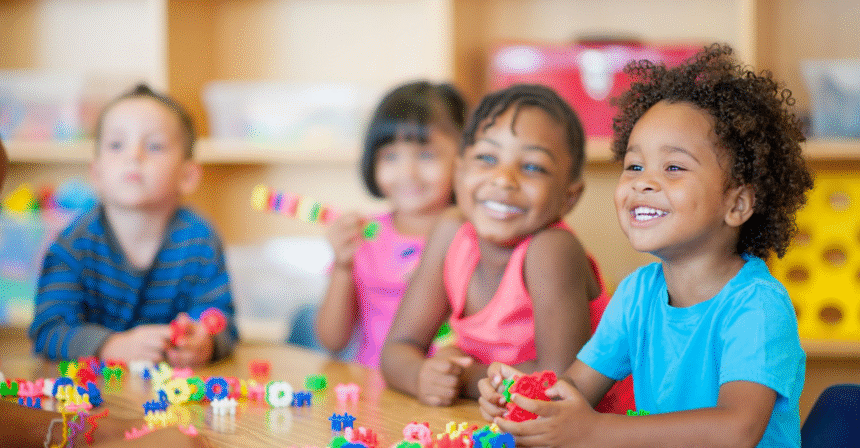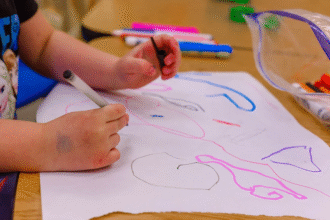Watching your baby grow is one of the most exciting and emotional journeys in life. Every coo, smile, roll, or tiny step feels like a major achievement—and that’s because it is! Understanding infant developmental milestones can help you track your baby’s growth and support them as they learn new skills.
In this article, we’ll walk you through the key developmental milestones for infants—from birth to 12 months. We’ll break it down by age range and cover motor skills, communication, cognitive development, and social-emotional growth.
What Are Developmental Milestones?
Developmental milestones are behaviors or physical skills that most children learn and master by a certain age. These include:
- Gross motor skills (like sitting or crawling)
- Fine motor skills (like grasping objects)
- Language and communication
- Cognitive skills (like problem-solving)
- Social and emotional responses
Every baby is unique, so some may reach milestones a little earlier or later than others. It’s okay—what matters is steady progress
Developmental Milestones by Age
Newborn to 2 Months
Cognitive:
- Begins to recognize faces, especially parents
- Starts to follow objects with their eyes
Communication:
- Makes cooing and gurgling sounds
- Cries to express needs (hunger, discomfort, etc.)
Motor Skills:
- Lifts head briefly during tummy time
- Moves arms and legs actively
- Grasps things placed in their hand reflexively
Social & Emotional:
- Begins to smile (especially by 6-8 weeks)
- May calm when hearing a familiar voice
Tip: Lots of skin-to-skin contact and talking to your baby helps build strong emotional connections.
2 to 4 Months
Cognitive:
- Shows more interest in surroundings
- Begins to explore objects with hands and eyes
Communication:
- Babbles more and mimics sounds
- Responds to voices with smiles or movements
Motor Skills:
- Pushes up on elbows during tummy time
- Holds head steady when supported
- Brings hands to mouth
Social & Emotional:
- Enjoys playing with people
- Recognizes caregivers and becomes more expressive
Tip: Tummy time is essential to strengthen neck and shoulder muscles.
4 to 6 Months
Cognitive:
- Starts recognizing their own name
- Shows curiosity about toys and people
Communication:
- Laughs, squeals, and mimics sounds
- Expresses pleasure and displeasure
Motor Skills:
- Rolls over from tummy to back (and vice versa)
- Begins to sit with support
- Reaches and grasps for objects
Social & Emotional:
- Develops strong attachment to primary caregivers
- Enjoys mirror play
Tip: Use colorful toys to stimulate visual and motor development.
6 to 9 Months
Cognitive:
- Understands object permanence (e.g., knows a toy exists even when hidden)
- Begins to explore cause and effect (e.g., dropping objects for you to pick up)
Communication:
- Responds to own name
- Understands simple words like “no” or “bye-bye”
- Babbles with more variation (e.g., “ba-ba,” “da-da”)
Motor Skills:
- Sits without support
- Begins crawling or scooting
- Transfers objects between hands
Social & Emotional:
- May show stranger anxiety
- Enjoys interactive games like peekaboo
Tip: Read simple picture books aloud—it supports language and bonding.
9 to 12 Months
Cognitive:
- Imitates gestures and actions
- Finds hidden objects easily
- Begins problem-solving in simple ways
Communication:
- Says simple words like “mama” or “dada” (may not always be directed correctly)
- Points to objects or pictures when named
- Understands simple commands
Motor Skills:
- Pulls to stand, may cruise along furniture
- Begins walking with support
- Uses thumb and forefinger to pick up small objects (pincer grasp)
Social & Emotional:
- Shows fear in some situations (e.g., unfamiliar places)
- Has favorite people and toys
- Displays affection and may have separation anxiety
Tip: Encourage independent movement but always ensure safety with baby-proofing.
Supporting Your Baby’s Development
Here are a few simple ways to support your infant’s growth:
- Talk often – even if they can’t respond, babies learn language from listening.
- Play every day – it encourages learning, bonding, and physical movement.
- Give space and time – let them explore and move safely on their own.
- Read regularly – it boosts vocabulary and brain development.
- Follow their lead – respond to their cues and interests to build trust.
When to Be Concerned
All babies develop at their own pace, but talk to your pediatrician if you notice:
- No smiling or eye contact by 3 months
- Not sitting by 9 months
- No babbling by 6-7 months
- Stiff or floppy limbs
- Doesn’t respond to sound
Early intervention can make a big difference, so don’t hesitate to raise concerns.
Final Thoughts
Understanding the key developmental milestones for infants helps you be more confident as a parent or caregiver. These milestones are not deadlines—but general guidelines that show how your baby is growing. Support, patience, and love are the best tools to help your child thrive.
Celebrate each little achievement, take lots of pictures, and enjoy every giggle—it all goes by faster than you think!
Frequently Asked Questions (FAQs)
1. What if my baby doesn’t reach a milestone on time?
Don’t panic—each baby is unique. Milestones are averages, not exact targets. However, if you’re concerned, talk to your pediatrician for peace of mind.
2. How can I help my baby develop faster?
There’s no need to rush development. Just provide a loving, stimulating environment with plenty of interaction, playtime, and encouragement.
3. Are developmental delays always serious?
Not always. Some delays are temporary and can catch up naturally or with early help. A medical check-up can guide the next steps.
4. Do premature babies follow the same milestone timeline?
Premature babies usually reach milestones based on their adjusted age (due date, not birth date). Your doctor can help track this accurately.
5. Should I compare my baby with others the same age?
It’s natural to compare, but try not to. Focus on your baby’s progress, not someone else’s timeline.







